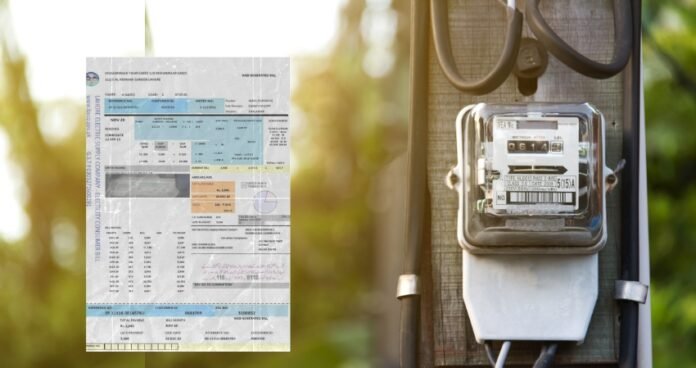ISLAMABAD, August 5:
The government’s power sector has come under renewed fire following confirmation of widespread overbilling in Lahore Electric Supply Company (Lesco), triggering calls for nationwide scrutiny of all power distribution companies (Discos).
The revelation came during a public hearing held by the National Electric Power Regulatory Authority (Nepra), where Additional Secretary for Power Mehfooz Bhatti disclosed that a probe, initiated on the orders of Prime Minister Shehbaz Sharif, found significant billing discrepancies. Disciplinary action has already been taken against involved officials, and the inquiry report has been submitted to the PM for formal processing.
However, Bhatti avoided elaborating on the findings, prompting strong concerns from consumers who called for similar investigations across other regions.
The hearing was originally convened in response to a request from ex-Wapda Discos for a negative quarterly tariff adjustment of Rs1.80 per unit, translating to Rs53.4 billion in consumer refunds for the August–October billing period. These savings are attributed mainly to lower capacity payments in the fourth quarter of FY2025.
Nepra’s Sindh member, Rafique A. Shaikh, recalled an earlier investigation by the regulator which was resisted by the Power Division, only to be later confirmed by the division’s own inquiry. He also highlighted that refunds had previously been arranged for overcharged consumers.
Meanwhile, Bhatti clarified that the federal government cannot remove electricity duty, as announced by the Power Minister, without the consensus of all provincial governments. So far, only two provinces have responded to the proposal.
The regulator also heard that 128,000 new connection applications remain unprocessed beyond deadlines, potentially delaying the integration of 1,070MW into the grid. Additionally, 4,000 net-metering applications, mostly from Faisalabad Electric, and 70,000 faulty meters remain unresolved, resulting in billing based on estimated usage.
In a positive development, 700–800MW of captive power plants have rejoined the national grid due to increased gas tariffs under the IMF programme, leading to a drop in circular debt from Rs2.39 trillion to Rs1.6 trillion.
Despite improved economic indicators, industrial power consumers from Karachi and Lahore raised concerns over a 14% average increase in electricity tariffs effective from July 1. They cited a 19% tariff already imposed by the U.S. on Pakistani goods and warned that rising local energy costs are making exports uncompetitive compared to countries like India.
Industry representatives clashed with the Power Division over cross-subsidy charges, with claims ranging from Rs73 billion to Rs137 billion. They also pointed out that system losses rose to 18.3% in FY2025, compared to 17.55% in FY2024 and 16.5% in FY2023, contradicting government claims of efficiency gains.
Despite these setbacks, the Rs53.4 billion refund request is driven by cost reductions from non-operational projects like the Neelum-Jhelum Hydropower Plant, contract renegotiations, falling interest rates, and rupee stabilization.
Among the 10 public-sector Discos, Faisalabad Electric reported the highest savings at Rs15.03bn, followed by Lahore Electric (Rs12.63bn) and Multan Electric (Rs8.48bn). Other notable contributors include Hyderabad, Gujranwala, and Peshawar Electric.
Although K-Electric did not contribute to these savings, its consumers will benefit due to the government’s policy of maintaining a uniform national tariff.
Under the prevailing tariff mechanism, monthly fuel costs and quarterly adjustments for capacity charges, operations, and other overheads are automatically passed on to consumers via base tariffs.
As investigations, consumer frustration, and tariff debates continue to escalate, the power sector finds itself at the center of public and regulatory pressure, demanding transparency, accountability, and meaningful reform.






















